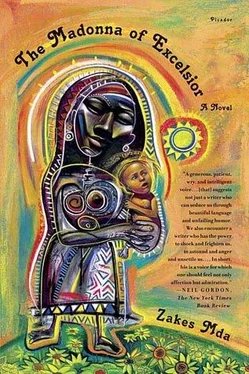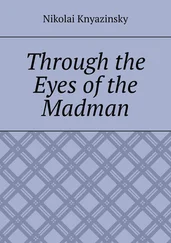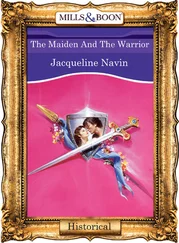He approached the car which, so far as he could see, contained only one person. He recognised Nolan as the person in the car. When he asked Nolan what he was doing there, Nolan replied: “Leave me alone, I have a strange girlfriend with me.”
Nolan reversed the car and he (Nel) saw an African woman jump out and run away. He arrested Nolan and took him back to the police station.
In a statement to a local magistrate in Rouxville, Nolan submitted that on the night concerned, he and his wife had argued. He left his home and went to a local hotel where he had been drinking the same afternoon.
The next thing he could remember was that he was being arrested by the police.
It was the Golden Age of Immorality in the Free State. Immorality was a pastime. It had always been popular even before laws were enacted in Parliament to curb it. It became a pastime the very first day explorers’ ships weighed anchor at the Cape Peninsula centuries ago, and saw the yellow body parts of Khoikhoi women. But what we were seeing during this Golden Age was like a plague. In various platteland towns Afrikaner magistrates were sitting at their benches, listening to salacious details, and concealing painful erections under their black magisterial gowns. Afrikaners prosecuting fellow Afrikaners with cannibalistic zeal. Afrikaners sending fellow Afrikaners to serve terms of imprisonment. All because of black body parts.
Young Afrikaner boys were eager to taste what their fathers were eating on the sly. They went out on hunting expeditions for what they called swart poes. In the fields. In the veld. In the byways of one-street towns. In the farm villages. And in the kitchens of their very homes, where maids and nannies cooked them their dinners.
The Friend , 17 November 1970:
The son of an Excelsior farmer has been arrested on charges under the Immorality Act. He is to appear with an African woman in the Excelsior Magistrate’s Court shortly. He has been released in the custody of his parents.
Within the current month 14 White men in the Free State have appeared before the courts on charges of contravening the Immorality Act.
While miscegenation and immorality were doing the rounds, and the law was saving the Afrikaner man from himself, the trinity was creating nuns in flowing blue habits. Nuns in a procession. Their child-like brown faces peeping through head-veils that flow almost to the ground. Hiding their feet. Five nuns that only live in the continuing present. Their world has nothing to do with the outside world of miscegenation. Yet each one of them is carrying a baby. Babies with slanting eyes. Babies that look grey at first glance, but have the colours of the rainbow if you look hard enough. (God promises us through the rainbow that He will never destroy the world again.) Babies wrapped in blue shawls. Only their round heads are showing. The first three nuns are looking ahead. The fourth nun is looking back at the fifth nun. Looking down at her. The fifth nun is the shortest of them all. She looks like a child. Her face has the innocence of a child. She is the only one who does not understand why they are carrying the babies and where they are taking them. She is with child. Yet she does not understand how it happens that her stomach reaches any destination before she does.
The nuns’ bodies reflect white light on the wall. These second selves follow the nuns like ghosts in a blue night.
16. THE KAMIKAZE OF THE GEESE
GEESE DIVE DOWN from the sky in a sacrificial kamikaze. The sky is overcast with dark purple clouds. A promise of rain. The ground is green. A man in a yellow ochre miner’s helmet, yellow face, brown suit and black boots carries a dead goose on his shoulder. A gift from the heavens.
Another gift from the heavens: Dr Percy Yutar, Attorney-General of the Free State, made the astounding decision that all charges against the Excelsior 19 were to be withdrawn. Word got to Excelsior just minutes before the trial could resume. All the accused were in the dock. Except for the Reverend François Bornman, who was recovering nicely at the Universitas Hospital. Adam de Vries had just addressed the court to the effect that the female accused would have legal representation. The surprised Karel Bezuidenhout, presiding magistrate, had just responded that in that case, the accused would have to be tried separately. There would be delays in the trial. Judgement would have to be passed individually on each of the accused according to the merits of the individual cases.
Mr Christiaan Calitz, the prosecutor, was jolted by the Attorney-General’s sudden decision. Even as he stood up to announce that he had received an urgent communication from Dr Percy Yutar, his hands were shaking.
“The charges have been withdrawn because in the view of the Attorney-General it is clear that state witnesses are no longer willing to give evidence in the trial,” said Christiaan Calitz.
His face did not hide the fact that he was not pleased with the decision. He believed that he had a strong case, which did not depend only on the evidence of the state witnesses. There were, for instance, the babies. Those babies did not make themselves. The doctor from Bloemfontein had conducted his tests, which proved conclusively that the fathers were white. His evidence would have assured the prosecution a sweet victory. The prosecutor would have got his convictions. But, of course, there was nothing that he could do. The Attorney-General’s word was final.
After the magistrate announced formally that the accused had no case to answer, there was an explosion of joy in the dock. The women couldn’t wait to burst out of the confines of the courtroom, to breathe the fresh air of freedom.
The sun was hiding behind dark clouds. But it did not matter. Freedom was freedom, even under a black sky.
Adam de Vries’s face was beaming with pride as he walked out of the courtroom. The newspaper reporters and television cameramen saw him, and proceeded to surround him. They expressed their surprise at the withdrawal of the charges. He retorted that he was not in the least surprised. He had known right from the beginning that his clients were innocent. The black women had been bribed to frame the poor men. But he could not — or would not — say who had bribed them. It was a good thing that the women had come to their senses, and decided they were not going to give evidence against his clients. It would have been fabricated evidence in any case, as his clients had never set eyes on these women until the trial.
“I speak here not only as the lawyer for the accused, but also as the mayor of Excelsior,” he added. “The people of this town are very relieved at the outcome. They believed from the start in the innocence of the people who were charged. We are a very happy community. The case has caused tension, but not as much as the press said it did. We did not like the bad publicity brought to our town by this case. People of all races in the town get on well together and live in complete harmony. Now we can go back to being just a little town as we always have been.”
Maria led the women in an impromptu dance for the benefit of the cameras. Friends and relatives joined the jig of victory. Mmampe was shouting above the din that the photographers should pay if they wanted to take photographs.
“There is nothing for mahala,” she was saying.
“Yes, they must pay,” agreed Maria. “We need the money. We’ll be jobless for the rest of our lives.”
“Jobless for the rest of your lives? Why?” asked a reporter.
“What white woman will employ us after this case?” asked Mmampe. “They will think we are after their husbands.”
“Prospective employers will recognise us from the pictures in your newspapers,” said another woman.
Читать дальше












